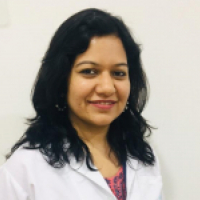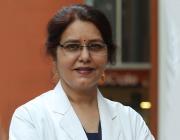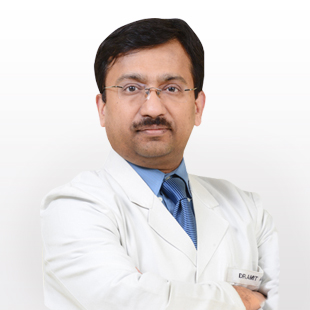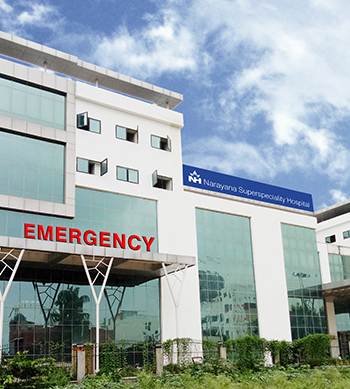About The Doctor
Dr. Shilpi Sharma is a trained Head & Neck surgeon and oncologist from Tata Memorial Hospital, Mumbai, which is the most prestigious institutions for cancer care, research and education in India and also has an undeniable international standing. She graduated from Lady Harding Medical College, New Delhi and completed her Masters in Otorhinolaryngology from Safdarjung Hospital and Vardhman Mahavir Medical College, Delhi, one of the busiest educational institutions. She is also Diplomat of National Board in Otorhinolaryngology. Following her post graduation, She did senior residency at Aruna Asaf Ali Government Hospital, Delhi. She had a keen interest in head and neck oncology and joined Tata Memorial Hospital, Mumbai as a Senior Research Fellow. She conducted high quality research in the field of head and neck cancers.
Specialization
- All Head & Neck cancer surgeries including those for oral cavity, thyroid, larynx, neck and parotid cancers.
- LASER procedures
- Simple and complex Head & Neck reconstruction
- Post laryngectomy voice rehabilitation with tracheo-esophageal puncture prosthesis
- Troubleshooting of prosthesis related problems.
Awards
- Best Oral presentation award at 1st Congress of Asia Pacific Society Of Thyroid Surgery, APTS, Korea, November 2015.
- International travel grant by the organizers to present a paper at 1st Congress of Asia-Pacific Society of Thyroid Surgery,( APTS), Korea 2015.
- International travel grant by Science & Engineering research board to present a paper at “IFHNOS 5th world congress American Head & Neck Society (AHNS) annual meeting, New York, July 2014 .
- International travel grant by Indian Council of Medical Research (ICMR) & Sam Mistry Fund to present a paper in 8th International Conference on Head and Neck Cancer, American Head and Neck Society, Toronto, Canada, July 2012
- Conference Scholarship to attend 11th Foundation for Head and Neck Oncology (FHNO), Mumbai, 2011.
Frequently Asked Questions About Oncology
How many kinds of tumours are there?
There are two kinds of tumour – Malignant & Benign. A benign tumour is more common, and is generally harmless. It doesn’t spread to other parts of body. A malignant tumour on the other hand, never stops growing unless until treated and can spread to other parts of the body. cancer is the name given to a malignant growth.
Is cancer contagious or infectious?
No. Since cancer is not caused by a germ, it is not “catching”, and cannot be transmitted from one person to another.
How does Cancer spread?
A malignant tumor is made up of cancer cells. When it first develops, this malignant tumor may be confined to its original site. This is known as a cancer in situ (or carcinoma in situ). If these cells are not treated, they may spread beyond their normal boundaries and into surrounding tissues, becoming invasive cancer. Some benign tumors are precancerous and may progress to cancer if left untreated. Other benign tumors do not develop into cancer. For a cancer to grow bigger than the head of a pin, it must grow its own blood vessels. This is called angiogenesis. Sometimes cells move away from the original (primary) cancer, either by the local tissue fluid channels (lymphatics) or in the blood stream, and invade other organs. When these cells reach a new site, they may continue to grow and form another tumor at that site. This is called a secondary cancer or metastasis.
What are the warning signs of Cancer?
The chances of curing cancer increase with early detection. The Indian Cancer Society and other organizations recommend paying attention to seven warning signs of cancer:
– Changes in bowel or bladder habits
– Unusual bleeding or discharge
– A sore that does not heal
– Indigestion of difficulty swallowing
– A nagging cough or hoarseness
– A thickening or lump in the breast or elsewhere
– An obvious change in wart or mole
A physician can detect cancer by taking medical history, performing routine check ups, cancer screening tests, imaging techniques and tissue biopsy.
What is Chemotherapy used for?
Chemotherapy is given for the following reasons:
– Shrink tumors
– Slow cancer’s growth
– Keep the cancer from spreading
– Relieve diseases related symptoms
– Prolong survival
Chemotherapy is used to treat many different types of cancer. The type, location, and stage of the cancer as well as your general health will largely determine if chemotherapy is appropriate and which agents ought to be used.
What are the benefits of taking treatment through MMT instead of directly from the doctor?
We provide services from top doctors across top hospitals to ensure that you get the best treatment.











